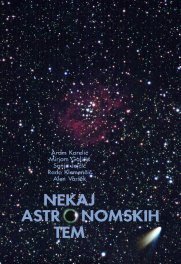 Slacker astonomy
Slacker astonomySlacker Astronomy is a weekly audio podcast about astronomy news that aired weekly from February 24, 2005 to September 14, 2006. After that, it branched out as a video podcast, blog, forum and a wiki called Slackerpedia Galactica.[1]
The podcast was created by Aaron Price, who wrote most of the scripts and ran the web site. The on-air talent were Dr. Pamela Gay (who also wrote some of the scripts) and Travis Searle (who engineered most episodes).[2] At the time, Aaron and Travis worked for the American Association of Variable Star Observers and Pamela worked for the Harvard University Science Center.
Slacker Astronomy peaked at #4 in the top 10 Science & Medicine podcasts in iTunes Store in January, 2006 and at the time reported 13,000 unique weekly listeners.[3] Its most popular show was downloaded by approximately 36,000 unique IPs after being featured on the frontpage of Slashdot on May 17, 2007.[4]
In addition to the weekly 5-10 minute show, there was another feed called Slacker Astronomy Extra where they published longer and unscripted shows, interviews and sound-seeing tours. The name 'Slacker Astronomy' was a trial name, and was meant to change early on in production but just stayed the same. The logo was designed by web cartoonist R. K. Milholland.
In September 2006, Pamela left the show and astronomer Dr. Doug Welch, Michael Koppelman and Rebecca Turner joined as hosts. Aaron began graduate school at the time, so had less time for script writing. These changes involved a format shift away from the the scripted shows towards the more informal shows and video podcasts. In 2009, Doug and Michael were joined by Mike Simonsen as the official producers and primary hosts with Aaron and Travis occasionally contributing. Pamela Gay is now a co-host of the Astronomy Cast podcast but has made numerous cameo appearances.
official site:
clickarhiv:
click Planetary Radio
Planetary Radio
The Planetary Society, founded in 1980 by
Carl Sagan,
Bruce Murray, and
Louis Friedman, inspires and involves the world's public in space exploration through advocacy, projects, and education. Today, The Planetary Society is the largest and most influential public space organization group on Earth. Dedicated to exploring the solar system and seeking life beyond Earth, The Planetary Society is non-governmental and nonprofit and is funded by the support of its members.
link:click
Astronomy CastAstronomy Cast takes a fact-based journey through the cosmos as it offers listeners weekly discussions on astronomical topics ranging from planets to cosmology. Hosted by Fraser Cain (Universe Today) and Dr. Pamela L. Gay (SIUE), this show brings the questions of an avid astronomy lover direct to an astronomer. Together Fraser and Pamela explore what is known and being discovered about the universe around us. OFFICIAL SITEPamela L.Gay
OFFICIAL SITEPamela L.Gay
AndromedaNa Hrvatskom radiju, na 2. programu, svakog utorka u 20h ide uživo jedna naučno-popularna emisija posvećena astronomiji i novostima iz sveta astronomije i nauka srodnih njoj. Emisiju vode Tanja Devčić (i ona je ta koja postavlja pitanja gostima i pitanja koja čitaoci redovno šalju na e-mail adresu emisije – andromeda@hrt.hr) i Ante Radonić, jedan od najvećih popularizatora astronomije i astronautike u Hrvatskoj.
Emisiju možete uživo pratiti tako što ćete na sajtu Hrvatskog radija (tačnije sa
http://www.hrt.hr/streams/) naći stream-ove i sačekati utorak, 20h.
Ono što je još bolje kod ove emisije je to što možete poslušati emisije koje ste propustili. Ako odete na sajt
http://rnz.hrt.hr/index.php i u padajućem meniju koji se zove “Mreža” odaberete 2. program, a u meniju “Naziv emisije” odaberete Andromedu.
Onda vam samo preostaje da sednete u neku fotelju, lepo se namestite i slušate. Mnogo toga ćete naučiti.
 FREKVENCA XVsak četrtek na Valu 202 ob 17h
FREKVENCA XVsak četrtek na Valu 202 ob 17h
arhiv:
click
RADIO OGNJIŠČElive cast:
clickarhiv:
click *zzn dotateke* Doživetja narave
 EXPLORA
EXPLORAExplora je kontakt radio emisija na radio Pulu u kojoj Korado Korlević odgovara na pitanja slušatelja.
Explora se održava svakim utorkom na radio Pulu u vremenu od 15:30 - 16:20h.
Arhiv:
free_onlineNASA SCIENCE NEWS 
AUDIO/TEXT arhive:
NASA SCIENCEbrainsmatterLINK TO ASTRONOMY DATA:
click









 fotografija:H.Mikuz
fotografija:H.Mikuz